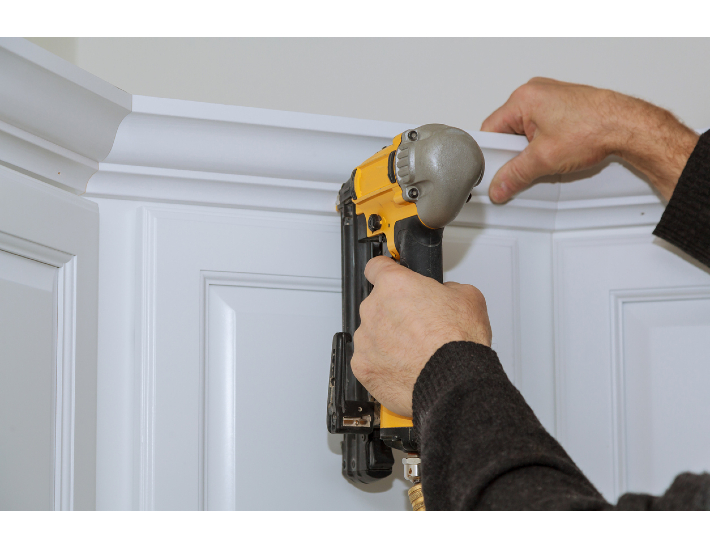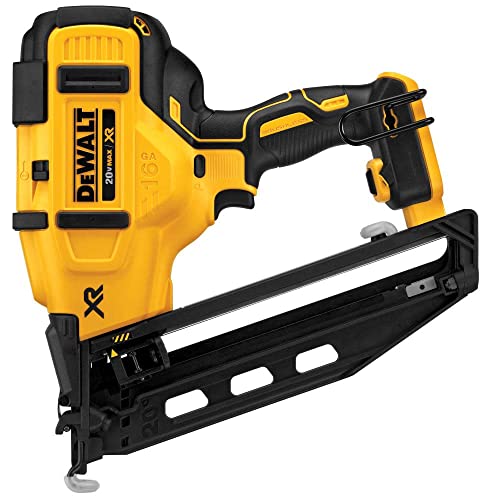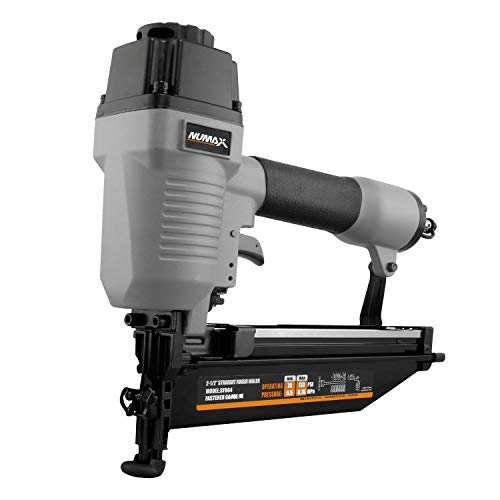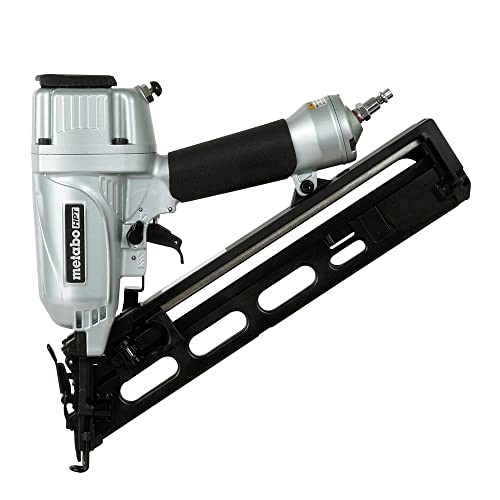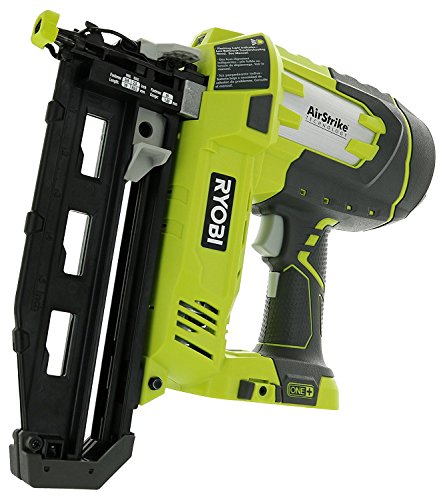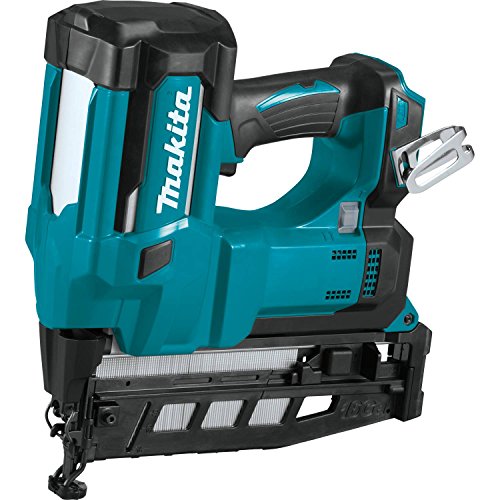- StoreProjects
- Free Plans and Projects
- Furniture Projects
- Jigs And Fixtures Projects
- Shop Projects
- SketchUp Models
- Shop Storage
- Workbenches
- Free Woodworking Downloads From Lee Valley
TechniquesToolsVideos- Premium Streaming Video Site
- Experts Guide to Gluing & Clamping Wood
- Mastering Built-In Furniture
- Simple Live-Edge Slab Table
- CNC – Designed for Woodworkers
- Milling Your Own Lumber
- Advanced Bandsaw Techniques
- I Can Do That! – Simple Woodworking Projects
- Woodwright’s Shop with Roy Underhill
- Tricks of the Trade
BlogOur content is meticulously curated through independent research, testing, reviews, and AI-driven recommendations, all designed to present you with the finest product choices. When you make a purchase through our links, it could result in us earning a commission.The Best Finish Nailers for Professional Results
Last updated: 20 Jul 2024
Several woodworking tools can be helpful for someone who finds joy in seeing their labor of love finished to perfection. One of the essential tools for completing a woodworking project is a nail gun, as it increases work productivity and pace. A finishing nail gun is crucial among the various nail gun types to get a firm and accurate nailing result. They achieve unrivaled levels of accuracy and consistency compared to manual nailing. Inadvertently, the hold strength is also improved. Purchasing a finish nailer will be a wise choice if you’re a stickler for detail and believe in producing high-yield and high-quality products. DEWALT, known for manufacturing excellent tools, particularly excels in crafting some of the best finish nailers available. We have reviewed the leading finish nailers of 2024 to aid your decision-making.
- Best Overall: DEWALT Finish Nailer Shop Now ➔
- Best Straight Nailer: NuMax Finish Nailer Shop Now ➔
- Best Angled Nailer: Metabo HPT Finish Nailer Shop Now ➔
- Best Cordless Nailer: RYOBI Finish Nailer Shop Now ➔
- Best Safety Features: Makita Finish Nailer Shop Now ➔
View all ContentsThe Best Finish Nailers
Best Overall
With its premium features, the DEWALT finish nailer is an excellent option for professional carpenters looking for a high-quality tool. It’s a very flexible option with the ability to drive nails from 1¼ to 2½ inches and is fully battery-powered and utilizes 20V lithium batteries, which don’t require the use of an air compressor, hose, or gas kit. It has a terrific run time despite its small size. It has features for quick jam release, quick stall reset, and depth adjustability. This finish nailer stands out as the best product on our list thanks to its valuable features, including ergonomic design, safety features, excellent performance, and user convenience.
Pros
- Compact and lightweight
- Excellent runtime and durability
- LED light for illuminating the work surface
Cons
- Regular maintenance is required
Best Straight Nailer
Pneumatic power is used to operate the NuMax finish nailer. It has enough force to drive nails up to 2 ½ inches long. It’s a flexible tool that can be used to help with a variety of professional and domestic tasks conveniently. Sequential firing and tool-free depth adjustment are two of the highly lucrative features. Its no-mar tip prevents it from leaving dents and dips throughout the surface. It also unclogs the jams and is exceptionally safe, with the ability to store 100 nails in a large-capacity magazine. This product includes air tool oil, adjustment tools, and a one-year warranty for protection. If you are looking for a straight finishing nailer, we have found this to be the best option for you.
Pros
- Ergonomic grip and easily maneuverable
- Durable construction and outstanding security features
- Easy to load and expansive storage
Cons
- Hose and compressor purchased separately
Best Angled Nailer
Consider the Metabo HPT finish nailer if you need a tool that can fit even the smallest spaces. It’s a 15-gauge pneumatic tool with top-notch features for working with rigid materials and surfaces. Sequential and contact nailing can be done with it, and switching modes is easy. You can change the nail’s depth without using additional tools, giving you better control over the outcome and a better surface finish. Since it weighs only 4.2 pounds, it’s easy to use for heavy work. Together, the air duster and exhaust improve the work surface’s visibility. What’s great about this product is that it also comes with a 5-year guarantee. If you are not looking for a straight nailer but instead an angled finish nailer, give the Metabo a try.
Pros
- Convenient nail placement in tight spaces
- Lightweight and ergonomically designed
- Adjustable air exhaust
Cons
- Unable to track the remaining nails
Best Cordless Nailer
The RYOBI finish nailer runs on batteries and works with 16-gauge nails. The 18V lithium-ion battery powers the cordless tool. You can control the depth of your nails thanks to the air pressure nail depth adjustment. It has a working surface lit by an LED-powered light that operates in all illumination conditions. It’s a durable device that’s also easy to use thanks to the tool-free adjustment and safety features like anti-dry firing, jamming release, and other similar features. Dragging a cord around with you while working is not a good time, but luckily this finish nailer can solve that problem.
Pros
- Enough power to fire 800 nails
- LED light illuminated work surface
- Excellent speed and no vibrations
Cons
- Can be too bulky for some users
Best Safety Features
The Makita finish nailer offers exceptional strength, accommodating 16-gauge nails ranging from 1 to 2 ½ inches in length. Powered by a 5.0Ah 18V LXT battery, it can drive up to 1000 nails on a single charge. Its cordless design and straightforward operation make it a standout in terms of convenience. Equipped with a trigger locking system and anti-dry fire mechanism, the Makita nailer ensures safety for both the tool, working surface, and operator. If safety is a top priority for your projects, this finish nailer provides peace of mind and reliable performance.
Pros
- Maximum efficiency and versatile application
- Ergonomic design facilitates easy handling
- Adaptable and integrated safety features
Cons
- The battery is not included
Buying Guide for the Best Finish Nailers
Whether you’re a seasoned professional or a dedicated DIY enthusiast, a finish nailer is an essential tool known for its precision and efficiency in securing trim, moldings, and other finishing touches. In this guide, we’ll explore key features that ensure seamless operation and superior results. Whether you’re upgrading your toolkit or exploring new equipment, this guide will empower you to make an informed decision tailored to your specific needs.
Brad Nailer vs. Finish Nailer
The gauge difference is what distinguishes the various nail gun types. The gauge designates the nail’s diameter and is expressed as a fraction; the lower the number, the thicker the nail. For instance, a 16-gauge nail is wider than an 18-gauge nail. The gauge typically also determines how strong a nail is. Brad and finish nailers have a similar appearance, and it’s mandatory to distinguish between them to make the appropriate selection.
Finishing Nailer
Compared to brad nailers, a finish nailer is larger and uses higher-gauge nails. Usually, 14- to 16-gauge nails are used. Unlike the brad nailer’s flimsy hold, the finish nailer’s thicker gauge produces a relatively solid and firm grip. A finish nailer is a very flexible tool that works well for many projects and materials. It should be the nail gun of preference when working on wood projects involving heavier trims. It should be noted that this results in slightly larger nail indentations, which can be later repaired with wood putty.
Brad Nailer
Brad nailers are typically 18-gauge, though occasionally they also come in 21-gauge. The small brad it fires gave rise to the name “brad nailer.” They can either be battery-powered or pneumatic, requiring an air compressor. To avoid larger holes, they are frequently used for precise tasks. It can also be used when working with thin, delicate pieces that risk breaking if a more powerful nail gun like a finish nailer is used. They are frequently used in situations where surface and finish are crucial. It is inappropriate for projects involving heavier wood or equipment due to its comparably weaker hold.
Types of Finish Nailers
Straight vs. Angled
In contrast to a straight finish nailer’s magazine, which is parallel to the head and the nailing surface, an angled finish nailer’s magazine is at a slight angle to the head and the nailing surface. The angulation of the straight finish nailer is 90 degrees. On the other hand, angled finish nailers typically come in two angulation options: 21 and 35 degrees. A greater degree denotes a sharper angulation. Compared to the straight finish nailer, the angled nailer offers greater versatility. Even the smallest spaces will fit it. The only drawback is that the angled finish nailer’s nails are much more expensive than straight ones and have a larger gauge, making them more noticeable.
Factors to Consider When Buying a Finish Nailer
Gauge
There are two different gauges for finishing nails: 15 gauge and 16 gauge. Your choice will depend on your intention in the context. Compared to 16-gauge nails, 15-gauge nails are thicker and have greater holding power. It’s best to use a 15-gauge finish nailer when greater strength and power are required. On the other hand, picking a 16-gauge nailer when finishing is your top priority.
Nail Depth
It refers to how far a nail penetrates the wood. A shallow depth will make the pin protrude, while a high depth will push the nail far too deeply. The nail depth should be adjustable.
Ergonomic Grip
For holding and using the tools comfortably, an ergonomic grip is essential. It enables effortless and continuous tool use.
Safety Features
The finish nailer with integrated safety features is the best option because finish nailers are hazardous machinery because they operate with nails and have high torque and power. The finish nailer with a contact safety tip and accidental firing prevention is the most suitable. These two features typically prevent all accidents.
Cost
Compared to other nail guns, finish nailers are an expensive option. The cost of a finish nailer is typically about 30% more than that of a brad nailer. Prices for finish nailers in 15 and 16 gauges also differ. It should be mentioned that pneumatic finish nailers are less expensive than cordless, battery-powered ones. The cost of the cordless kits for 15-gauge finish nailers ranges from $250 to $500. The same-gauge pneumatic finish nailer runs between $150 and $250. Only marginally less money is spent on the 16-gauge finish nail guns than on the 15-gauge ones. The price of a cordless kit ranges from $180 to $420. The price range for pneumatic versions is $100 to $220.
Finish Nailer FAQ
Are the four different sizes of finish nailers 15 gauge, 16 gauge, 18 gauge, and 23 gauge?
No, the only finish nailers are 15 and 16-gauge nail guns. A brad nailer is indicated by gauge 18, while a pin nailer is indicated by gauge 23.
Can I use a brad nailer pin in my finish nail gun if I run out of finish nailer pins?
No, the brad nailer pins and finish nailer pins cannot be used interchangeably due to the differences in gauge sizes. Each pin can only be used with the corresponding gun.
Should I oil my finish nailer?
Unless the manufacturer specifies otherwise, it is advised to oil the finish nailer after each use to prolong its service life and reduce wear and tear on parts, such as valves.
Article Contributors
Read More About Popular Woodworking Reviews Team HereThe Popular Woodworking Review Team’s product reviews and comprehensive guides are here to help you select the best gear and tools to efficiently complete top-quality woodworking projects.
Popular Woodworking is reader-supported: When you buy through links on our site, we may earn an affiliate commission. Artificial Intelligence (large language models) may have been used in the research and creation of the content.
Questions about product testing or a specific articles should be sent to aimperiapt@gmail.com
Related Reviews

